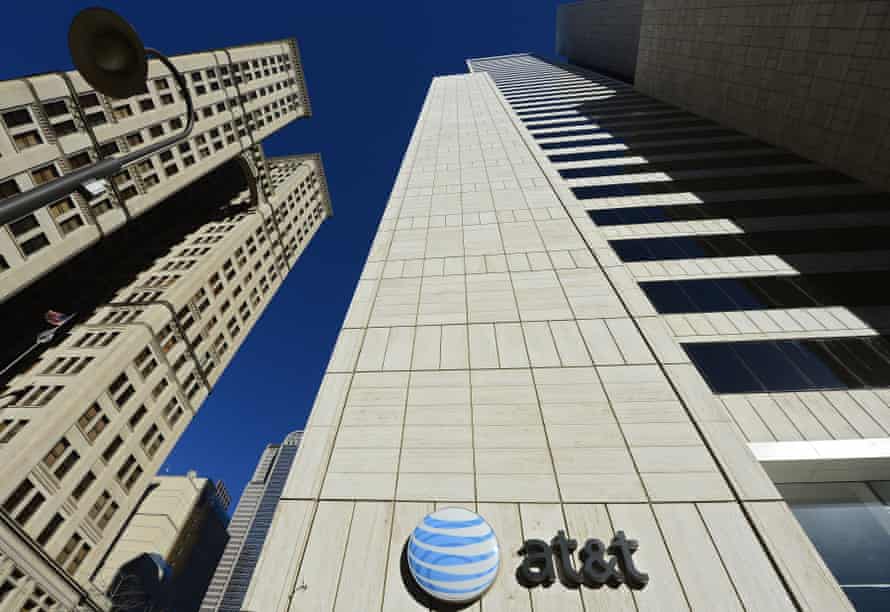Are US corporations really taking a stand for voting rights?
Activists welcome support in the battle against Republican voter suppression but wonder what such words are worth
Despite a wave of public statements by corporations opposing legislation that would make it harder for people to vote, election reform advocates doubt American capitalism is really coming to the rescue of American democracy.
Activists are welcoming corporate involvement in the fight against bills introduced by Republicans in state legislatures across the US to erect barriers to voting that disproportionately affect people of color and other groups that often vote Democratic.
Hundreds of companies and business leaders lent their names this week to a two-page ad declaring “we must ensure the right to vote for all of us”, published in the country’s biggest papers.
But past corporate interventions in social justice campaigns, including statements of solidarity with Black Lives Matter protesters last summer, did not go far beyond words, activists say.
The pursuit of lower taxes and lax regulations, meanwhile, has led corporations to continuously finance the Republican party’s most corrosive projects, from voter suppression to the takeover of the judiciary to the big election lie that led to the sacking of the Capitol in January, they say.
“Of course we welcome corporate support against outrageous voter suppression efforts by GOP state legislatures that make it harder for voters, particularly from communities of color and other historically marginalized communities, to vote,” said Ben Jealous, president of People For the American Way.
“That reaction is no doubt driven by their fears of losing business from their customers in the midst of heated public anger over such aggressive and targeted voter suppression, and we hope they will put their money where their mouth is and take real action to stop such proposals.”
Thenewspaper ad was organized by two African American business leaders – Kenneth Frazier, chief executive of Merck, and Kenneth Chenault, former head of American Express – who have said such bills are racially discriminatory, even as Republicans insist election security is their deepest concern.
The corporate decision to speak out created a rare moment of discombobulation for the Senate minority leader, Mitch McConnell, who warned chief executives to “stay out of politics” before clarifying a day later, with no hint of self-consciousness: “I’m not talking about political contributions.”
But the surface friction between McConnell and his erstwhile patrons belies the mildness of most corporate criticism of anti-voter laws and obscures companies’ ambivalence when it comes to taking a stand on voting rights, activists said.
Large Georgia-based companies including AT&T, Delta Airlines and Coca-Cola did not voice concerns last month about legislation to restrict voting in the state until they came under public pressure. Their eventual statements were measured.
“We are working together with other businesses through groups like the Business Roundtable to support efforts to enhance every person’s ability to vote,” said AT&T’s chief executive, John Stankey. “In this way, the right knowledge and expertise can be applied to make a difference on this fundamental and critical issue.”
The same three companies declined to sign the ad published in the New York Times and Washington Post last week, referring media to their statements about Georgia, though similar high-profile clashes are playing out in Michigan, Arizona, Texas and elsewhere.
Walmart declined to sign the ad, with its chief executive, Doug McMillon, who chairs the Business Roundtable, telling employees: “We are not in the business of partisan politics.”
Walmart’s reticence was spotlighted by LaTosha Brown and Cliff Albright, co-founders of Black Voters Matter, in a statement that praised the newspaper ad as a “righteous decision to stand up to racism, disenfranchisement, and voter suppression” and criticized those who did not sign.
“They – and all of these other companies – continue to issue misleading statements that create a false equivalency between securing elections and attacking voting rights,” Black Voters Matter said. “These corporations are pandering to a big lie that is being used to justify voter suppression. That’spartisan.”
Michael Serazio, a professor of communications at Boston College, said corporations appeared to be taking a “proactive” approach on voting rights to protect their bottom lines.
“It does feel, on this one, that some of these companies are getting out ahead of a potential boycott from consumers, before the boycott around the laws was going to kick off,” Serazio said.
Corporations increasingly feel pressure from consumers and in some cases employees on social and political issues, Serazio said.

“Without question, the broader trend over the last decade has been corporations responding to a perceived or real sense that consumers want them to take a stand on political issues that they wouldn’t have done before.”
But corporations simultaneously shovel money into the coffers of the very politicians who engineer the policies the companies claim to detest.
A report this month by Public Citizen, a government watchdog, found corporations had given more than $50m in campaign donations in recent years to legislators who advanced anti-voter laws and promoted Donald Trump’s big election lie.
Josh Silver, director of Represent.us, a non-partisan elections reform group, said corporations have “an extraordinarily important role” to play in the struggle over voting rights and there was “cause for hope”.
“But it’s also practical for them,” Silver said. “They have to choose whether to side with an increasingly authoritarian [Republican party], or the majority of their workers and their consumers.
“This is not just altruism.”
No comments:
Post a Comment